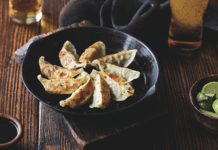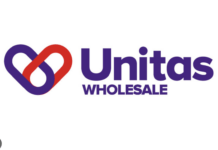With more than 35 years’ experience in the sector, there are few CVs more impressive than that of MJ Baker Foodservice managing director Malcolm Baker.
Starting out in Booker Foodservice (now Bidvest), Baker enjoyed autonomy as the buying and marketing manager at the Lee Mill depot, which turned over £3m.
After a stint in Booker’s head office, Baker joined the Catering Distributors Alliance and amalgamated it with Countrywide to create what is now known as Country Range. He then put together a team composed of the best talent he had worked with – former Booker Foodservice colleagues, the previous owner of wholesaler EC Steed, and a marketing graduate called Jo, who later became his wife – to found MJ Baker, a business he describes as the “most profitable foodservice wholesaler in the industry”.
“We had a number of shareholders and we raised £345,000 of share capital. We put down £40,000 as a deposit on the depot and began trading in March 1999 without a single customer.”
Of the company’s early days, he says: “It was incredibly brave to put every penny we had into its success. If it had gone wrong, we could be sleeping under Waterloo Bridge right now.
Starting off selling ambient, chilled and non-food, MJ Baker was one of three wholesalers in the area selling dried goods when it started.
“There were a lot of very small frozen food depots,” Baker notes. “Because these wholesalers operated in a small area, they could service customers who needed deliveries six days a week with no minimum order.”
Now, though, most frozen food suppliers have become multi-temperature, so the pressure is on for wholesalers to become one-stop shops.
MJ Baker extended into frozen food 10 years ago. Originally, the business rented a frozen food chamber half a mile from the original depot, but Baker again took a risk. He explains: “We don’t like being tenants, because it leaves you vulnerable. So we borrowed some money and bought a warehouse. It’s one of the largest frozen chambers in the West Country, with 1,000 pallet spaces. It’s ideal for what we’re trying to achieve.”
MJ Baker is geared towards achieving impressive results and works to offer a service different to that provided by its competitors. It takes orders six days a week, but has a cut-off point of 4pm for next-day delivery.
As a result, the business knows by 6pm exactly how many lorries, drivers and pickers it will need.
“We don’t make exceptions with orders after 4pm because we deliver first time in full every time. If we make a mistake, we will bend over backwards to put that right and our extra service is exceptional,” Baker says.
“Most of our competitors have no minimum delivery, and their telesales department are running until 11pm. Then they’re trying to sort out all of these different orders and deliver them next day, which will inevitably lead to operational failures.
“I can honestly say that in all these years, I could count on one hand the number of times we’ve failed to make a delivery.”
 MJ Baker was inspired by national wholesalers such as Brakes and 3663 to create its delivery service, which is crucial to its profitability.
MJ Baker was inspired by national wholesalers such as Brakes and 3663 to create its delivery service, which is crucial to its profitability.
“Most business is done on 17-tonne vehicles in which we can get a £6,000 payload, so we’re making a gross profit of £1,800. Our competitors run on Transit vans so they can only get about £1,500 on each vehicle; by the time they pay for the driver and the vehicle, they’ve limited their profits.”
The entire fleet has been fitted with forward-facing cameras, which keeps insurance premiums to a minimum and helps protect the business against bogus claims. TomTom trackers on the vehicles enable customer service managers to see where drivers are if customers ring up asking when they can expect a delivery. The business is also working on a click & collect option.
Partnerships with buying groups have helped MJ Baker to grow, too. “We’ve been a member of Today’s since 1999, and they’ve given us firm standing in negotiation with suppliers,” Baker says.
“We’re also a member of Fairway, who do some great deals and have (online database) Erudus, which helps us and our customers identify allergens in products.”
MJ Baker’s results come not just from its investment in warehouses and vehicles, but also from continual investment in its staff.
“Every year we reinvest in an extra lorry, an extra telesales operative, an extra rep and an extra driver. They can then bring in £500,000 of new business, you’ll make £150,000 gross profit, and end up with £50,000 net profit,” Baker says.
Hiring staff is one thing, retaining them is another. MJ Baker has worked hard to keep its staff, and many of its original founders are still with the company.
“We like to pay top salaries to bring the top trade people into our organisation,” Baker says. “We’re a very wealthy business and we’re making a 10% margin, so we have a lot of flexibility.”
The main challenges the business has faced in recent years has been from threats beyond its control. Deflation in the market has meant that even though the business is selling 11% more boxes than last year, its turnover will remain similar.
“Brexit is going to be interesting as our prices will go up dramatically,” Baker says. “The cost of goods we’re purchasing has gone up because of the drop in the pound – there’s been a 10% differential, and that can work to our advantage. But we’re very worried about the movement of European workers because we employ 30 European workers, and they are the backbone of our business.”
He adds that by staying true to its service and running a tight ship, the business is set for a great future.
Baker concludes: “Occasionally a competitor will offer an unsustainable deal and the customer will buy into it, only to be disappointed in six months. Most people who leave us come back.”







